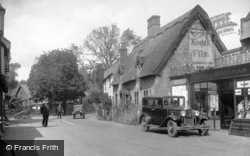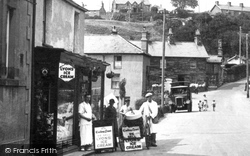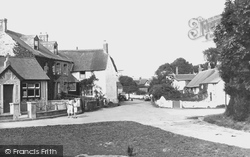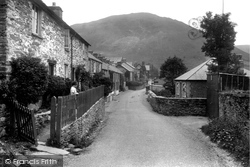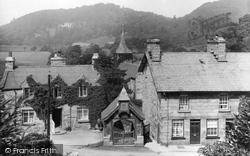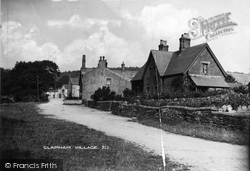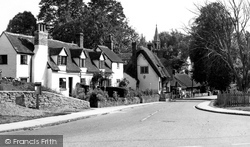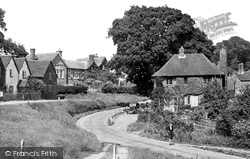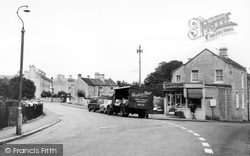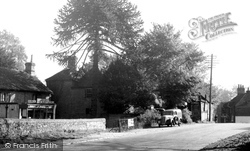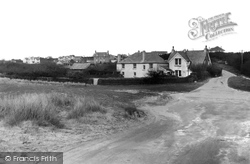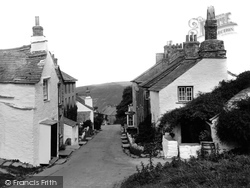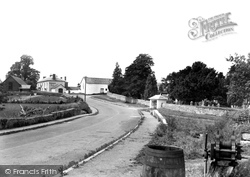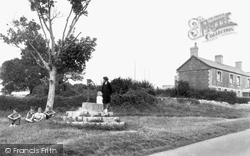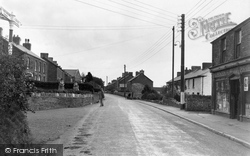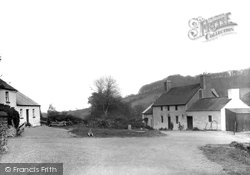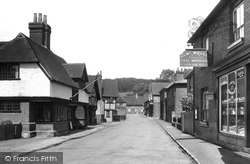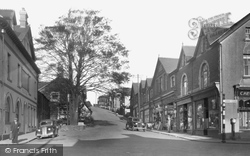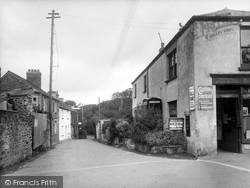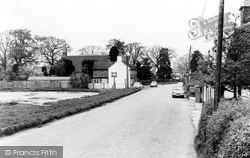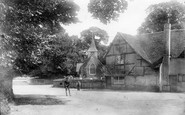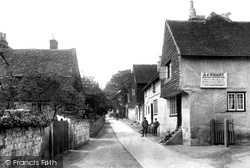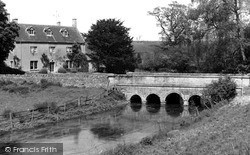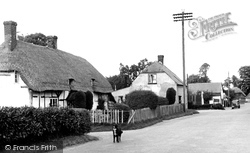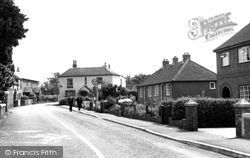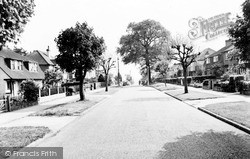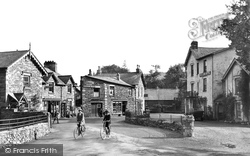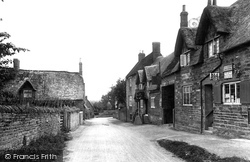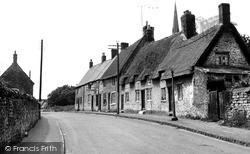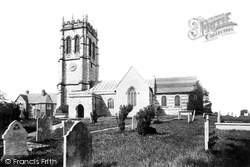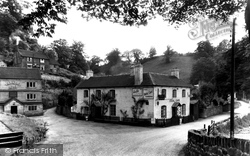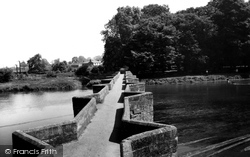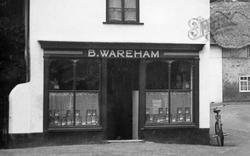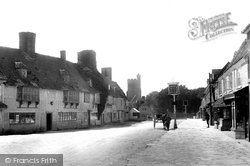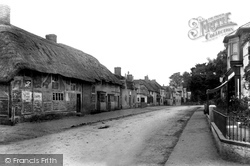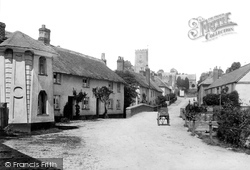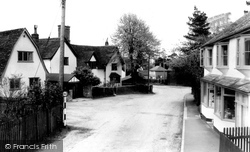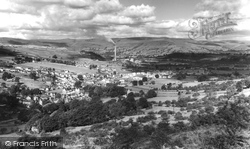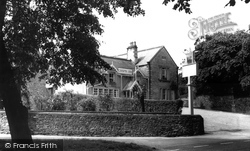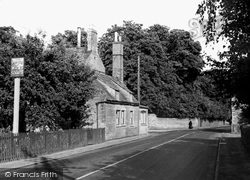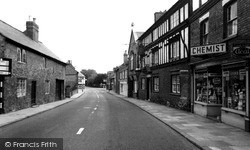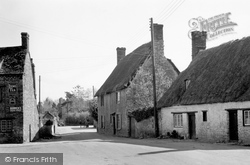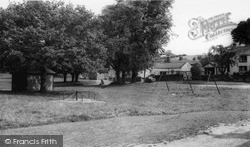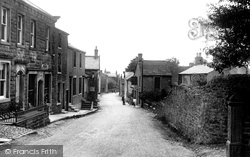Places
5 places found.
Those places high-lighted have photos. All locations may have maps, books and memories.
Photos
9,649 photos found. Showing results 1,601 to 1,620.
Maps
18 maps found.
Books
13 books found. Showing results 1,921 to 13.
Memories
4,612 memories found. Showing results 801 to 810.
Richard Moss Samuel Nott B 1811
Ancestors Richard Moss and his cousin Samuel Nott were from Sible Hedingham according to the 1841 and 1851 census. Richard was a brick maker and carter. Are there any traces of these family still in the village? They relocated to Rotherham before 1840 but I'd like to trace Richard's ancestors.
A memory of Sible Hedingham in 1860 by
Melrose Cottage 8 Shalbourne
In the 1950s and early 1960s my brother and I were fostered to a Miss Little and her sister at 8 Shalborne, there were several children living there and I have many fond memories of our stay. We used to sleep in a ...Read more
A memory of Shalbourne by
Coming To Devon
We were living in Barry Island in south Wales, I was getting ready to take the 11 plus, one day when I came home from school my dad was waiting to tell me that we were on the move to Devon. We had spent four years on the Nells ...Read more
A memory of East Prawle in 1946 by
Newbottle Village
I remember coming from school and running up to the hillside fields helping Wheightman to load the hay onto his tractors and building the haystacks on North Pasture, off down to the yard pond looking for frogs and newts ...Read more
A memory of Newbottle in 1956 by
Memories
I went to Northmoor back in the 1940s and stayed with my parents' friends Mrs Bastable and her family for 6 weeks. The house was thatched and just across the way from a line of trees called "The Causeway". I remember going to ...Read more
A memory of Northmoor in 1940 by
The Chapels
In the 1940s and 50s social life in Cwmtwrch was centred on the chapel and public house. There were eight active chapels, each with its own distinctive architecture, and representative of the major non-conformist denominations in ...Read more
A memory of Lower Cwm-twrch in 1940 by
My Childhood Days Brynna Boy
8 Southall Street /16 Tan-y-Bryn. We, the Brynna Boys, used to run to school, Mr & Mrs Davies Head Master and thei two daughters, strict and friendly, firm and kind. I can only describe those happy days, Coronation ...Read more
A memory of Brynna in 1953 by
Home
I was born in Mid Calder; my sister in Pumpherston; and my brother in Uphall Station. We lived at 17 Nettlehill Road until we emigrated to Canada in October 1957. We all went to the school in Uphall Station and my favourite teacher was ...Read more
A memory of Uphall Station in 1957 by
Wartime Evacuee 1939 1940
In August 1939 I was evacuated frm Salford to Caton. I had my gas mask, a small parcel of food and a label on my clothing. We arrived at the then beautiful station, adorned with flowers. Then we walked to the Village ...Read more
A memory of Caton in 1930 by
Somewhere In Buckland
Round about 1840 my widowed great, great grandmother Hannah, and her son Joseph were brewers in Buckland. But unless any Buckland resident knows of the history of the village I shall never know where exactly. The Frith ...Read more
A memory of Buckland by
Captions
5,016 captions found. Showing results 1,921 to 1,944.
Running between the church and Nutfield Road, this narrow cobbled alley, with red tile-hung Tudor buildings approached by red brick steps, was once the High Street of the village.
The road from the village leads to Lodge Park, some two miles away from the spot photographed here.
Could the dog be waiting for his weary owner to catch up? This village is close to the Test Valley. There are many thatched cottages to be enjoyed here.
There are two villages called Ash in Kent. This one lies about three miles from Sandwich.
The old village of Woodmansterne is behind the photographer, who is looking towards the Chipstead valley via the switchback road of Chipstead Way.
The Red Lion Hotel, on the right of the picture, gives its name to the square in the centre of the village, now dominated by traffic in a one-way system.
The village Post Office on the right has a small sign attached to the wall which reads 'Post Office for money orders, savings bank, parcel post, telegraph, insurance and annuity business'.
The last building on the right was originally the village bakery and next to it, as seen in this picture, was an off-licence.
The church stands proudly above the village, which used to be totally separated from Dorchester.
When W H N Nithersdale wrote his book on the Highlands of Staffordshire, he was impressed by the number of public houses in the village, all of which did a roaring trade during the summer months and at
We are looking towards the village from across the Trent. All the way across the bridge are pedestrian refuges built atop each of the bridge's triangular- section cutwaters.
Once at the heart of King John's hunting ground of Cranborne Chase, the village of Cranborne is rich in history.
The Red Lion Hotel, on the right of the picture, gives its name to the square in the centre of the village, now dominated by traffic in a one-way system.
The village is still celebrated on Easter Monday as the home of the Maids of Biddenden, Eliza and Mary Chulkhurst, two Tudor Siamese twins joined at the shoulders and hips, who lived for thirty-four
On the right can be seen the shop of Stephen Randall, grocer, baker, prpvision merchant and draper.
East Budleigh's main street has changed little since this photograph was taken at the outbreak of the Great War.
This is the road that leads to the village school. The house in the centre, Cabbaches, proclaims the date 1390 on a plaque near its front door.
This view across Bradwell shows the prominent chimney of the Hope Valley Cement Works at Hope, a valuable source of employment for local people.
The name of the Crispin Inn in Great Longstone recalls one of the village's former specialities, boot and shoe making - St Crispin is the patron saint of that trade.
To the west of Castor lies Ermine Street, a Roman road; excavations have shown that the village is built over a large Roman estate.
The famous hunt often meets at the crossroads in the distance. The main A6 is quiet as it passes the White Swan.
The peace and tranquillity of Botley all changed in 1964 when major development took place. Today, the village is a thriving suburb of Oxford, with many shops, banks and offices.
The road dividing the village green in two can be seen running behind the bus shelter beside the tree on the left.
The post office is on the left with its sign outside.
Places (5)
Photos (9649)
Memories (4612)
Books (13)
Maps (18)




